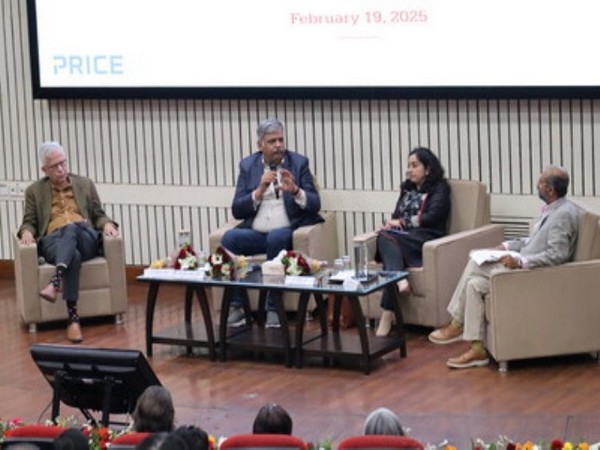PRNewswire
Udaipur (Rajasthan) [India], February 21: The Centre of Development Policy and Management (CDPM), IIM Udaipur, in association with People Research in India's Consumer Economy (PRICE), recently hosted a thought-provoking panel discussion on 'How Inclusive is India's Growth in the 21st Century? The Experience of the First Quarter'. The session featured prominent experts--Dr. Shamika Ravi (Member, Economic Advisory Council to the PM), Mr. Nikhil Ojha (Senior Partner, Bain & Company), and Prof. Dipankar Gupta (Indian Sociologist)--who examined India's economic and social transformation over the past 25 years. The discussion was moderated by Prof. Saurabh Gupta, Co-Head, CDPM.
Dr. Shamika Ravi emphasised that India's growth is not an inevitability but the result of well-targeted policies. While India has successfully reduced absolute poverty to below 3%, human development indicators still lag behind global standards. She highlighted the increasing role of women in the labour force, attributing it to focused policy interventions. However, she noted that industrialisation remains critical for job creation as the country moves toward an increasingly urban future.
Mr. Nikhil Ojha focused on India's shifting income distribution, pointing out that the middle class has expanded significantly, driving consumption growth. However, he cautioned that FMCG revenue growth is lagging behind nominal GDP, raising concerns about whether economic policies are sufficiently addressing the needs of aspirational consumers. He also highlighted the urgent need to address regional disparities, particularly in job creation, to ensure balanced growth.
Prof. Dipankar Gupta examined the evolving caste and class structures in India, explaining that economic reforms and urbanisation have significantly altered traditional power equations. While caste-based hierarchies have weakened, caste identity remains a powerful political force. He stressed that investment in research and development will be key to ensuring quality job creation in the future.
The panel concluded that industrialisation, employment generation, and regional inclusivity will be critical for sustaining India's growth. The discussion, part of IIM Udaipur's commitment to fostering meaningful dialogues, provided deep insights into the challenges and opportunities shaping India's economic future.

About IIM Udaipur
IIM Udaipur is well on its way to becoming a globally recognised B-School. It has broken new ground by focusing on world-class research and transforming students into tomorrow's managers and leaders. The Institute arrived on the global education stage by securing accreditation from the AACSB (Association to Advance Collegiate Schools of Business) in merely eight years of its establishment. With this accreditation, IIM Udaipur is counted in the same league of global institutes, such as Harvard Business School, Wharton School at the University of Pennsylvania, and the MIT Sloan School. IIMU has been listed on the Financial Times (FT) Global MIM Ranking 2024 for the 6th consecutive year, making it the only IIM to have achieved this feat. In the QS Global MIM Ranking 2025, IIM Udaipur stands as the 6th highest-ranked IIM and continues to maintain its listing for the 6th year in a row, reinforcing its global standing. Notably, it is also the youngest B-School in the world to be featured in both rankings. Additionally, IIM Udaipur ranks 4th in India for research in management, according to the UT Dallas methodology, which tracks publications in leading global journals, showcasing its excellence in academic research.
Photo: https://mma.prnewswire.com/media/2624309/CDPM_at_IIM_Udaipur.jpg
Logo: https://mma.prnewswire.com/media/2183220/IIMU_Logo.jpg
(ADVERTORIAL DISCLAIMER: The above press release has been provided by PRNewswire. ANI will not be responsible in any way for the content of the same)

